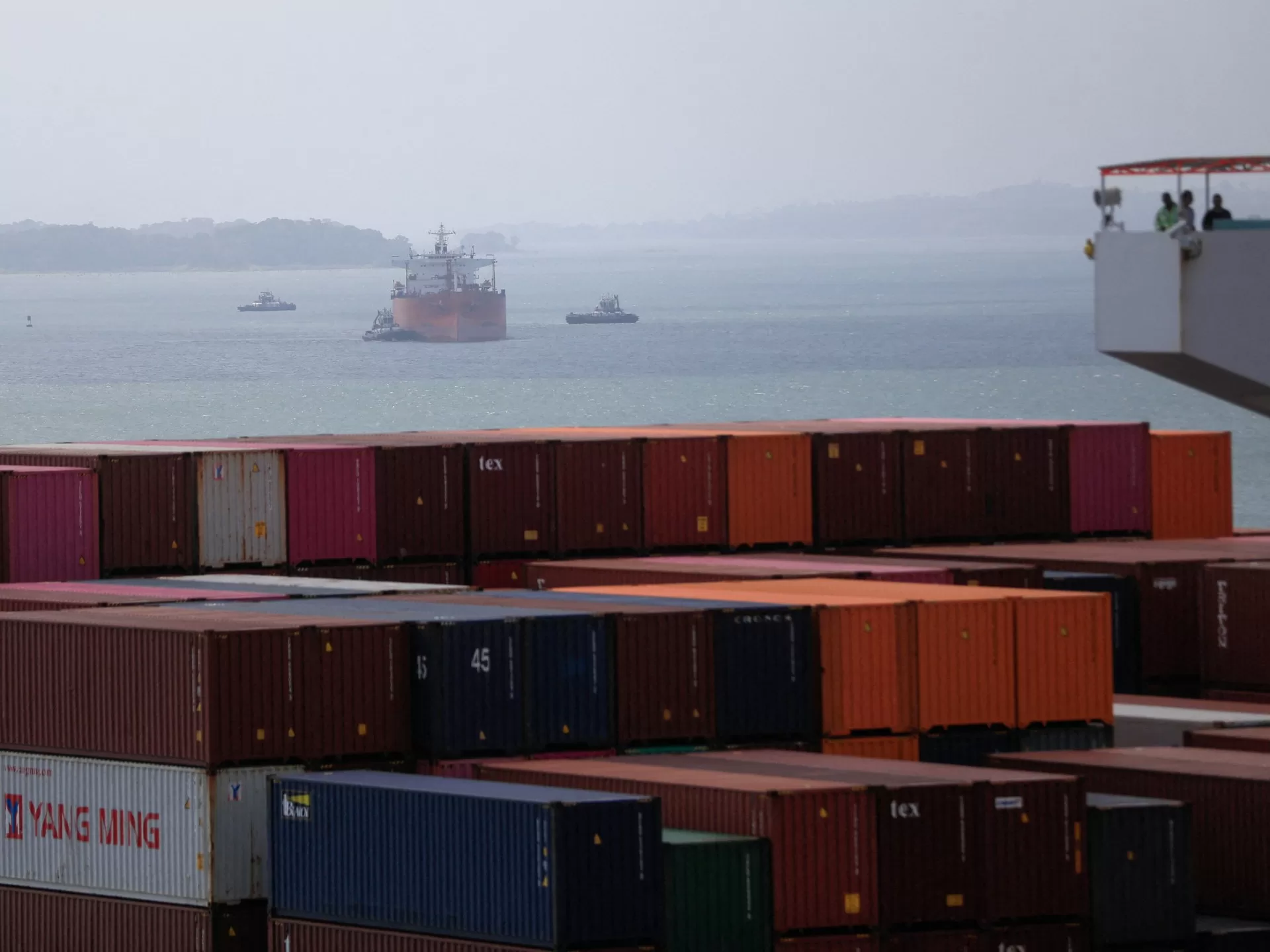Stricter registration policies from Panama, the world’s largest ship registry, come amid a push to crack down on oil smuggling.
A former United States official has praised a new executive decree from Panama that is set to strip maritime vessels of their domestic licences and registrations if they face global sanctions.
On Tuesday, John Feeley, who served as the US ambassador to Panama from 2015 to 2018, told Al Jazeera the move was a “welcome step by Panama’s new government, which is working hard to improve the business climate”.
Panama — home to one of the busiest maritime shipping routes in the world, the Panama Canal — also boasts the largest ship registry since 1993.
But the country has faced a growing Western push to crack down on illicit trades like oil smuggling, particularly from Iran and Russia.
“There are basically just a few big registries in the world,” Feeley told Al Jazeera. “The international maritime authorities, as well as the US government and the European Union member states watch them closely… Reputation risk is at play.”
Protecting ‘prestige’ of Panama
In response to the pressure, Panama’s President Jose Raul Mulino issued an executive decree on October 18 that would revoke the national registration of maritime vessels if they were sanctioned by the US, the United Kingdom, the United Nations Security Council or members of the European Union (EU).
The decree explicitly said that such sanctions “may affect the prestige and reputation of the Panamanian flag”.
“In order to maintain a Panamanian Vessel Registry free of international sanctions”, the decree explained, “it is considered necessary to establish a regulatory framework that allows the immediate cancellation of the registry of those vessels”.
The Panama Maritime Authority (PMA) has been charged with carrying out any registry cancellations.
Feeley told Al Jazeera there are immediate consequences for ships that lose their licences.
“If a ship is de-flagged, there are industry watchers who track and report where it goes and what it does,” he explained.
Panama is among a list of countries known as “flag of convenience” states, where global ship owners can register their vessels with the local government.
That allows international actors to bypass the tighter regulations they may face in their home country.
Panama has long attracted global shipping companies with its comparably lax regulations and lower costs. Its maritime authority lists more than 8,000 ships registered to Panama.
Response to international sanctions
Experts see the executive decree as a result of pressure from the US and other allies.
But Panama has also pushed back, saying that the international scrutiny has “stigmatised” the country.
This week, President Mulino travelled to Paris where he met with his French counterpart, Emmanuel Macron, and petitioned him to remove Panama from a list of EU tax havens.
In a press release on Tuesday, Mulino’s office reiterated its position that “it is unfair for Panama to be included in the European Union’s list” of “non-cooperative jurisdictions for tax purposes”.
Given Panama’s importance as a key shipping route, foreign governments like that of the US have sought to restrict the movement of illicit trade through its waters.
In September, the US Treasury levied sanctions against seven Panama-flagged vessels for alleged involvement in transporting oil for Iran’s Islamic Revolutionary Guard Corps (IRGC) or its ally Hezbollah.
Shipping expert Mike Schuler said the executive decree is “expected to have a significant impact on vessel owners and operators, particularly those engaged in risky or illicit activities”.
“Panama’s decisive actions are likely to prompt other flag states to review their own regulatory frameworks., Schuler wrote for the gCaptain maritime news site.
Other “flag of convenience” states have also taken recent steps to stamp out vessels engaged in illicit activity.
In August, the island nation of Palau revoked the registration of three liquefied natural gas carriers after they were hit with US sanctions over ties to Russian gas.
